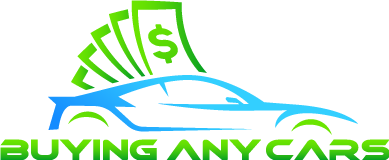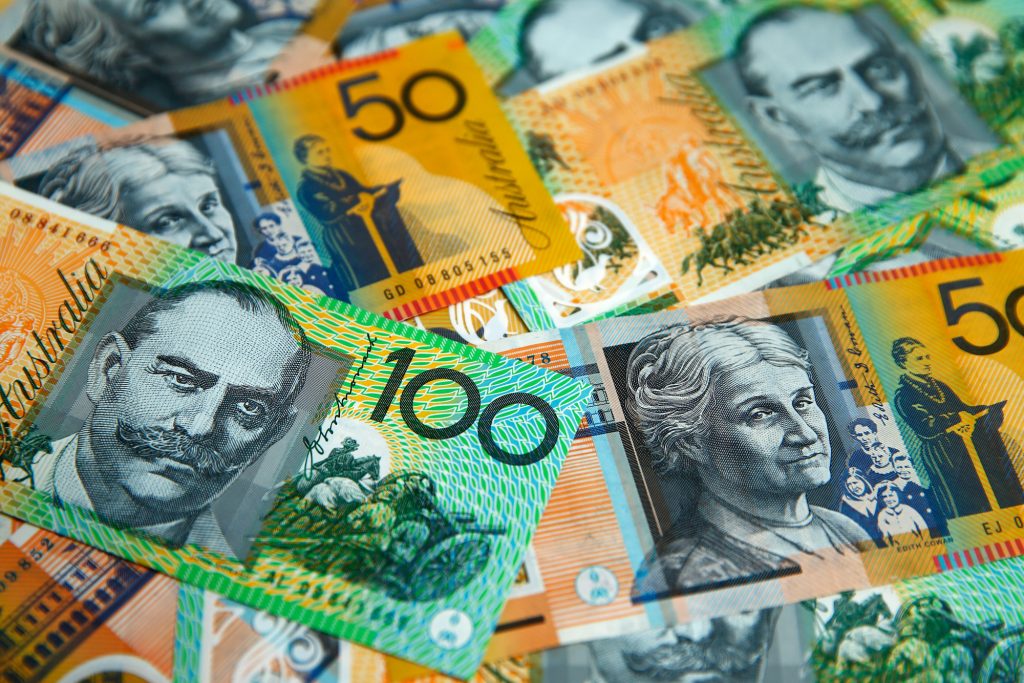How Much Is A Catalytic Converter | New Vs Scrap Prices

Wondering what your catalytic converter is really worth? You’re not alone.
Whether you’re looking to replace one or scrap it for some extra cash, knowing the difference between new and used prices can save – or earn – you hundreds of dollars.
In Australia, the value of a catalytic converter can vary wildly depending on the type, condition, and even the fluctuating prices of precious metals inside it.
Let’s break it down into plain English, with no jargon or fluff.
What Is A Catalytic Converter And Why Is It Valuable?
A catalytic converter is a part of your car’s exhaust system that reduces harmful emissions.
It’s tucked away between the engine and the muffler, and despite being out of sight, it’s a treasure chest of valuable materials.
Think of it as a silent environmental warrior, cleaning up your engine’s dirty work before it hits the atmosphere.


The Role of Catalytic Converters in Vehicles
Catalytic converters help vehicles comply with emissions laws by converting toxic gases, like carbon monoxide, nitrogen oxides, and hydrocarbons, into less harmful substances like nitrogen, water vapour, and carbon dioxide.
It’s done through a chemical reaction triggered by heat and precious metals inside the converter.
Precious Metals Inside a Catalytic Converter
The real money lies in the metals. Inside every catalytic converter are small amounts of platinum, palladium, and rhodium – all extremely valuable on the commodities market.
These metals are rare, expensive, and essential for the chemical reactions that reduce emissions.
When scrapping a converter, recyclers are mainly interested in recovering these metals.
Environmental and Economic Importance
By cutting down toxic emissions, catalytic converters help reduce air pollution. Economically, they also help car owners recoup some value when the car is beyond repair.
A non-running vehicle with a catalytic converter is often worth more than one without. That small metal box plays a big role in your car’s environmental footprint and resale potential.
How Much Does A New Catalytic Converter Cost In Australia?
Let’s talk new prices. If you’re replacing a faulty catalytic converter in Australia, brace yourself – it’s not cheap.
Costs can range anywhere from $300 to over $3,000, depending on the vehicle and type of converter.
Average Prices for New Catalytic Converters
For most standard cars, a new catalytic converter will set you back between $500 and $1,200. If you drive a luxury or performance vehicle, prices can soar beyond $2,000.
Hybrid vehicles tend to have more expensive converters, too, due to higher concentrations of precious metals.
Cost Differences by Vehicle Make and Model
Toyota, Honda, and Mazda models generally have moderately priced converters. But if you’re driving a BMW, Audi, or Lexus, expect a larger bill.
The design complexity and premium components used by luxury brands often result in higher prices and labour costs.


OEM Vs Aftermarket Catalytic Converters
OEM (Original Equipment Manufacturer) parts are the same as the ones your car came with.
They’re reliable but expensive. Aftermarket converters are cheaper and widely available, but they might not last as long or meet emissions standards in all cases.
Some even void your warranty, so choose wisely.
Installation Costs and Additional Expenses
Installation costs in Australia typically range between $150 and $400, depending on the vehicle.
Throw in gaskets, clamps, or sensors, and you might be looking at another $100 or so. If your old converter caused engine damage, repairs could add more to the total bill.
What Is The Scrap Value Of A Catalytic Converter?
Now, here’s the fun part – getting paid for what most people see as junk. The scrap value of a catalytic converter depends heavily on its size, condition, and metal content.
It also fluctuates with global metal prices.
Average Scrap Prices in Australia
In 2025, the average scrap value of a catalytic converter in Australia ranges from $250 to $1,000.
Some large OEM converters can go for even more. Prices can dip or spike weekly based on market demand and the prices of platinum, palladium, and rhodium.
How Precious Metal Prices Affect Scrap Value
Precious metals are traded commodities. Their prices rise and fall with the market. Rhodium, for instance, reached staggering highs in recent years, pushing scrap values up.
If you’re selling a converter, it’s worth checking the daily spot prices of these metals.
Examples of High-Value Scrap Converters
Certain makes and models fetch premium prices. Toyota Prius converters are among the most valuable due to their high rhodium content.
Similarly, converters from diesel trucks or European luxury cars often have higher metal concentrations, driving up their scrap value.
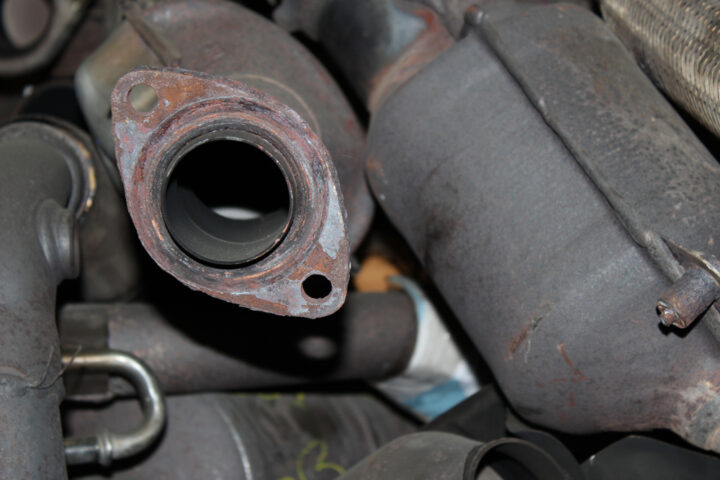

Factors That Influence Catalytic Converter Prices
Not all converters are created equal. Their price can vary based on a mix of physical characteristics, brand associations, and market timing. Here’s what affects the bottom line.
Vehicle Type and Engine Size
Bigger engines usually mean bigger converters – and more metal. Trucks, vans, and SUVs often have dual converters, which can double the scrap value.
Smaller cars tend to have one compact unit with less metal.
Amount of Precious Metals Present
The more platinum, palladium, and rhodium, the higher the price. Converters with a dense coating of these metals are prized by recyclers.
This often depends on the emissions standards the vehicle was built to meet.
Condition and Age of the Converter
A cracked, hollow, or burnt-out converter won’t be worth much. Age also affects resale value — newer converters usually have more recoverable metal.
However, older OEM units can still carry weight, especially if they were made before emission rules were relaxed.
Current Market Demand for Scrap
Supply and demand matter. If demand is high for recycled metals and supply is tight, scrap values shoot up.
Prices may drop if the market gets saturated or if environmental regulations change. Timing your sale can make a difference.
Original Vs Replacement (Aftermarket) Units
OEM converters almost always fetch higher prices than aftermarket ones. Aftermarket units contain less precious metal and are often built to looser standards.
Recyclers can usually tell the difference just by looking at the structure or serial code.
How To Check The Value Of Your Catalytic Converter
Don’t guess – get smart. There are several ways to estimate your catalytic converter’s value before heading to a buyer or recycler. Here’s how to get a ballpark figure.


Online Tools and Price Guides
Websites like AutoCatalystMarket provide searchable databases with converter models and estimated prices.
Simply enter your part number and get a rough estimate. Keep in mind, these tools are more of a guide than a guarantee.
Serial Number and Part Identification
Most catalytic converters have a serial number stamped into the casing. That number is key to identifying the part and getting an accurate quote.
If the serial number is worn off, some buyers may offer a flat rate based on weight or visual inspection.
Contacting Local Recyclers and Scrap Yards
Reach out to multiple recyclers in your area. Prices can vary between buyers, so it pays to shop around.
Some recyclers will provide quotes via photo or in-person assessment. Be honest about the converter’s condition to get a realistic offer.
Using Precious Metal Price Trends to Estimate Value
Keep an eye on the prices of platinum, palladium, and rhodium.
Even if you don’t trade commodities, a basic chart can give you an idea of whether it’s a good time to sell or wait for prices to rise.
Where To Sell Your Scrap Catalytic Converter
There are a few routes you can take when it’s time to sell. Each has pros and cons, so choose based on convenience, payout, and reliability.
Scrap Yards and Metal Recyclers
These are the most common places to sell. Many offer instant quotes and cash payments. Some even provide pickup for bulk or heavy loads.
Just check if they require ID or proof of ownership – laws vary by state.
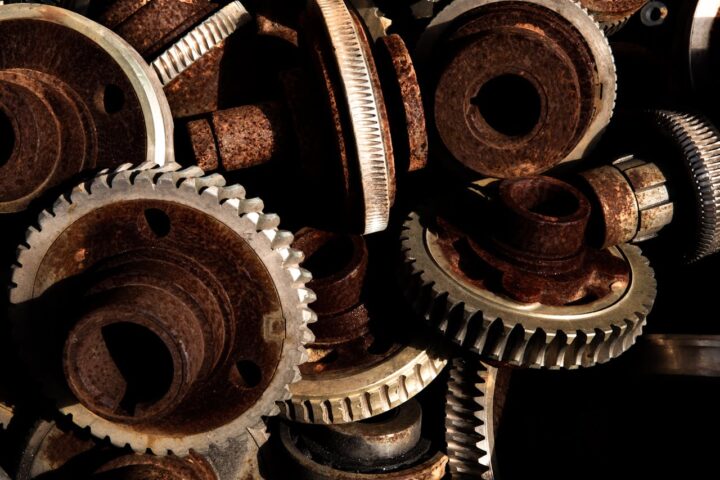

Auto Wreckers and Car Removal Services
If you’re scrapping an entire vehicle, you can usually get a better deal by selling the car as-is.
Car removal companies like Buying Any Cars will often factor in the catalytic converter’s value when quoting you for the whole vehicle.
Online Buyers and Marketplaces
Sites like eBay and Facebook Marketplace allow you to sell directly to buyers, but beware of scammers.
Always use secure payment methods, and never ship anything without receiving payment first.
What To Know Before You Sell
Know the part’s origin and serial number.
Be ready to prove you own it. Avoid deals that sound too good to be true – they usually are. And always get multiple quotes before committing to a sale.
Legal And Ethical Considerations
Stealing catalytic converters has become a serious issue. Authorities are cracking down, and laws are tightening. Be sure to stay on the right side of the law.
Laws Around Catalytic Converter Sales in Australia
In some Australian states, sellers must show ID and provide vehicle proof before a sale.
Scrap yards are also required to record purchases and submit data to local authorities to prevent illegal activity.
How to Avoid Dealing with Stolen Parts
Only buy or sell converters through reputable businesses. Avoid cash-only deals that skip paperwork.
If someone offers you a suspiciously high price or has several converters without a vehicle, it’s best to walk away.
Proper Documentation and Identification
When selling, have your driver’s licence and, if possible, the car’s registration details. Document the sale in writing or request a receipt.
These simple steps can protect you from legal issues down the line.
Tips To Maximise The Value Of Your Catalytic Converter
If you want top dollar for your converter, there are ways to boost your payout. A little prep goes a long way.
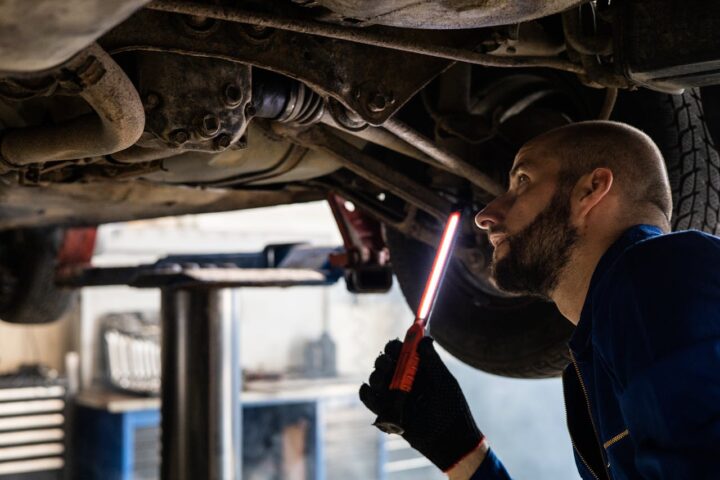

Do’s and Don’ts Before Selling
- Do take clear photos of the part and serial number.
- Don’t try to clean it with chemicals – that won’t help.
- Do get multiple quotes.
- Don’t sell to unverified buyers.
How to Safely Remove a Catalytic Converter
Removing a catalytic converter can be tricky. If you’re not handy with tools, get a mechanic involved.
It usually involves lifting the car, unbolting the exhaust system, and carefully cutting through rusted sections.
Always wear safety gear and avoid damaging the part – dents or cracks can lower its value.
Understanding Grading and Classification
Recyclers often grade converters by size, type, and metal content. High-grade units come from newer or luxury vehicles.
Low-grade ones might be aftermarket or from older models. Knowing your converter’s grade helps you negotiate a fair price.
Frequently Asked Questions
Still have questions?
Can I Sell a Catalytic Converter Without a Car?
Yes, but you may be asked to prove ownership. In some states, it’s required. Reputable buyers will want to know the converter wasn’t stolen.
Why Do Some Converters Fetch Higher Prices?
It all comes down to metal content. Converters from hybrid or diesel vehicles tend to have more platinum and rhodium, which boosts the value.
What Happens to the Metals After Recycling?
Recyclers crush the converter and extract the metals using chemical processes. These metals are then reused in electronics, jewellery, or new car parts.
Is It Worth Selling an Old or Damaged Converter?
Often, yes. Even damaged converters can contain valuable metals. If the honeycomb structure inside is intact, it can still be worth something.
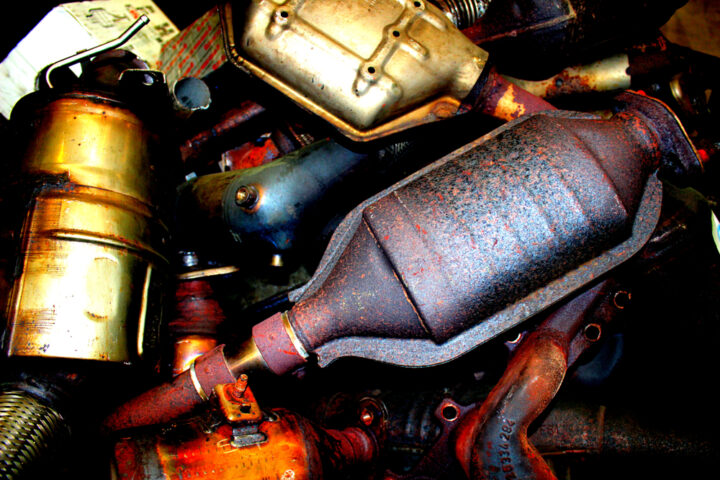

Conclusion: Understanding Value In The New Vs Scrap Market
Whether you’re buying a new converter or scrapping an old one, knowledge is power.
Prices vary based on metal content, market trends, and part origin. But one thing’s for sure – that little metal box is worth a closer look.
If you’re in Australia and considering cashing in your converter, take your time, do your homework, and don’t settle for the first offer.
You might be sitting on a small fortune and not even know it.
